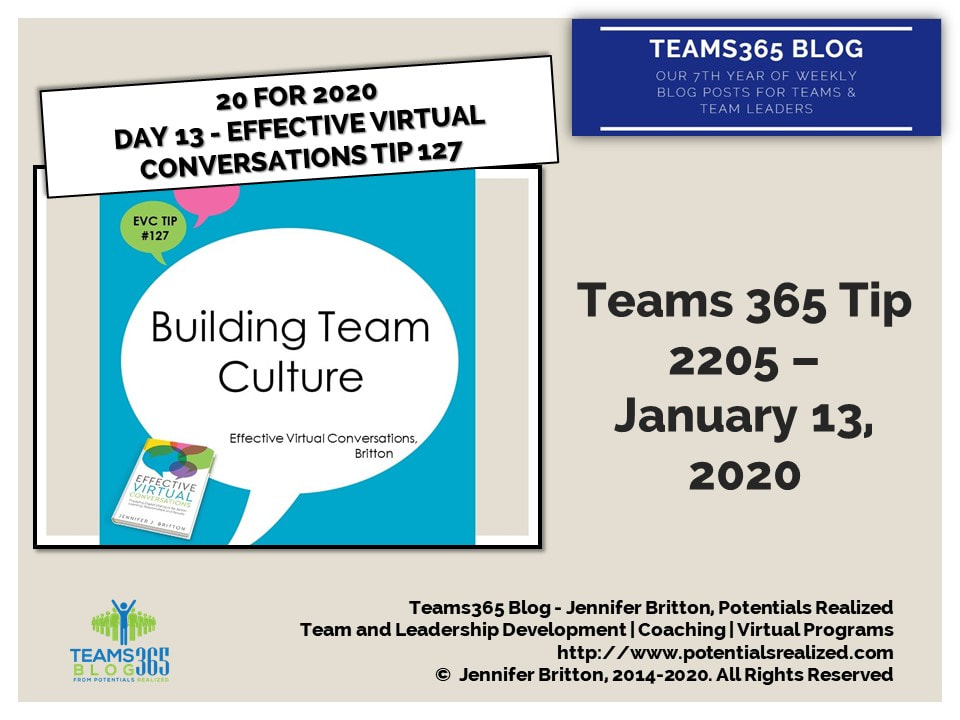Team culture consists of several elements including HOW we do things. Our team culture includes our agreements, our norms – what’s acceptable and what’s not, our values (which help with decision making, prioritizing, as well as the more visible elements of culture – the way we sign our emails, how we hold meetings, plus any other team differentiators.
In addition to boosting a sense of belonging, team culture is critical when remote team members may be part of multiple teams. For example, if I am part of a Central North America Team, as well as being part of the learning team. The learning team may have values around communication, expedience, learning and experimentation. This may translate to agreements around how fast we communicate, how we share alternative points of view, and how much autonomy we have in getting things done. A strong team culture will help us understand these elements as well.
Given that my learning team culture is distinct from the North American team culture, I can differentiate in the different relationships, meetings and tasks what’s important. In contrast, the NA team may value metrics, efficiency (different than expedience), business cases, and brevity. What is prioritized and what is expected will be different.
Culture in a remote space can be invisible unless we make a point of making it visible and tangible. It can be seen in our processes, our communication, our language and even branding. Making it as explicit as possible, and naming it is also an important part of remote team success.
What can you be doing to make your remote team or organizational culture more visible and intentional?
For more on culture, check out the past posts I have written on Team Culture.
Enjoy!
Jennifer
Potentials Realized | Coaching Team Leaders | Remote Pathways Podcast
Team and Leadership Development | Coaching | Writing
Phone (416)996-8326
As we step into the start of the year, get your planning on with the PlanDoTrack Workbook and Planner or Coaching Business Builder
Looking to enhance your virtual conversations? Webinars? Pick up a copy of Effective Virtual Conversations at Amazon.
Winter 2019 programs start this week including the Coaching Biz Growth Lab (an annual focus on coaching business development), GroupCoachingEssentials (8.75 CCEs), the Advanced Group and Team Coaching Practicum (10 CCEs) and the Virtual Facilitation Essentials program (8.5 CCEs) - geared to support you in creating more exceptional virtual conversations. Finally the Mentor Coaching Group for Winter 2020 will begin - aimed at coaches who are working towards their ACC, PCC or renewing.

 RSS Feed
RSS Feed





